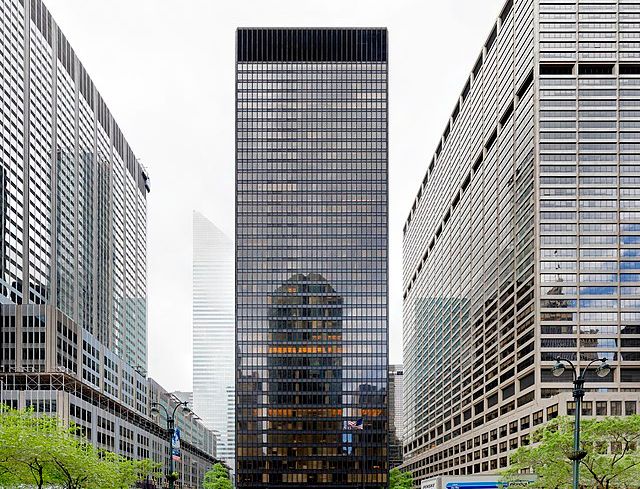CMBS Delinquency Rate Jumps 7 Percent in May
By Marc McDevitt June 7, 2023 9:25 am
reprints
The CRED iQ delinquency rate for CMBS for the month of May increased for the fourth consecutive month to 4.2 percent.
The delinquency rate was 28 basis points higher than the prior month’s rate of 3.93 percent, equal to a 7 percent increase. The CRED iQ delinquency rate has risen by approximately 29 percent since the start of 2023 as a result of headwinds facing the commercial real estate industry.
Main drivers for the increased delinquencies include more distress in the office sector and a tighter refinancing environment for loans coming due at maturity.
The delinquency rate is equal to the percentage of all delinquent specially serviced loans and delinquent non-specially serviced loans for CRED iQ’s sample universe of more than $600 billion in CMBS conduit and single-asset single-borrower (SASB) loans.
CRED iQ’s special servicing rate, equal to the percentage of CMBS loans that are with the special servicer (delinquent and non-
delinquent), increased month-over-month to 6.01 percent, from 5.39 percent. After a slight decline in April, the special servicing rate continued its upward trendline started in December 2022, when the rate equaled 4.62 percent. Aggregating the two indicators of distress — delinquency rate and special servicing rate — into an overall distressed rate (delinquency plus special servicing percent) equals 6.43 percent of CMBS loans that are specially serviced, delinquent, or a combination of both.
April’s distressed rate was equal to 6.08 percent, which was 35 basis points lower than the May distressed rate. The month-over-month jump in the overall distressed rate mirrors increases in the delinquency and special servicing rates. Distressed rates generally track slightly higher than special servicing rates as most delinquent loans are also with the special servicer.
May data revealed additional turmoil for the office sector for which the property-level delinquency rate rose to 3.98 percent, compared to 3.81 percent in April. One of the largest loans to be reported delinquent was a $783 million senior fixed-rate mortgage secured by 375 Park Avenue, a 38-story, 830,928-square-foot office tower in Midtown Manhattan. The loan failed to pay off at its scheduled May maturity date and subsequently transferred to special servicing to execute a modification, which extended the loan’s maturity date one year, among other terms.
Additional financing for the 375 Park property included $217 million in mezzanine debt that was also extended. A near-term delinquency cure is likely given the closing of the modification; however, the maturity default exemplifies the choppy waters facing impending office debt maturities.
Perhaps more concerning was the 30-day delinquency of a $275 million mortgage secured by EY Plaza, a 920,308-square-foot office tower in downtown Los Angeles. The loan transferred to special servicing in April due to a missed payment. Similar to 375 Park, EY Plaza has mezzanine financing ($30 million).
However, a primary difference from a credit perspective is that EY Plaza is encumbered by floating-rate debt, which highlights issues with debt service coverage more so than refinance risk.
The delinquency rate for office properties has been the most volatile among property types.
The lodging delinquency rate (4.55 percent) exhibited a modest month-over-month increase but is down annually. The retail delinquency rate (7.59 percent) is higher than April’s rate, but has exhibited signals of plateauing with recent workouts of loans secured by regional malls.
The multifamily delinquency rate (1.87 percent) has exhibited year-over-year increases but remains relatively lower than other major property types. Industrial (0.34 percent) and self-storage (0.00 percent) continued to outperform from a delinquency perspective in May.
Pivoting to special servicing rates by property type, office loans exhibited the most activity. The special servicing rate for loans secured by office properties increased to 6.08 percent, compared to 5.57 percent as of April. With its rate now above 6 percent, the office special servicing rate is nearly double its level from 12 months ago.
The May surge in specially serviced office loans was driven by the transfer of a $1.3 billion loan secured by a 146-property office portfolio owned by Workspace Property Trust. The floating-rate loan transferred to special servicing in April ahead of its upcoming July maturity date. The loan has an extension option remaining but obtaining an interest rate cap may be cost prohibitive.
Aside from the office sector, the special servicing rate for retail loans declined to 9.95 percent, compared to 11.04 percent as of April. The special servicing rate for lodging came in at 6.38 percent, a modest increase compared to April.
Multifamily (3.87 percent) exhibited a decrease in its special servicing rate, and the special servicing rate for industrial properties(0.42 percent) was relatively flat compared to the prior month. There was no self-storage specially serviced inventory.
CRED iQ’s CMBS distressed rate by property type accounts for loans that qualify for either delinquent or special servicing subsets. For May, the overall distressed rate for CMBS increased to 6.43 percent, which was 35 basis points higher than April’s distressed rate (6.08 percent), equal to a 5.7 percent jump. CRED iQ observed a relative surge in the overall distressed rate over the past four months as the distressed rate pushes to its highest level since early 2022.
Marc McDevitt is a senior managing director at data analytics firm CRED iQ.



